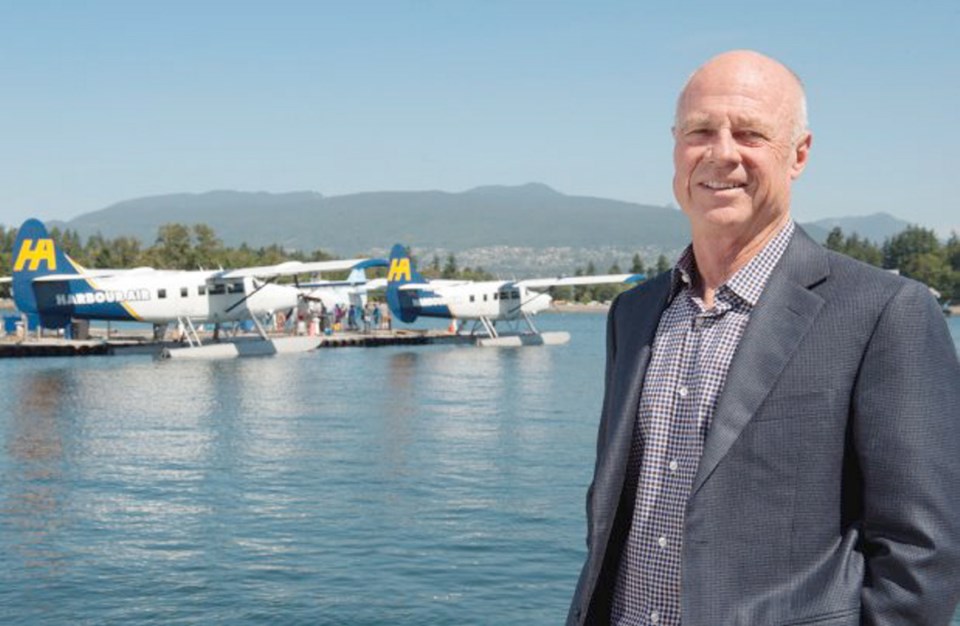Vancouver-based Harbour Air, the world’s largest seaplane airline, has entered into a strategic partnership with Zongshen Industrial Group to export its commuter float plane service to China.
The deal, which was approved by the Canadian Transportation Agency last week, will see Zongshen’s Tianchen General Aviation Co. own 49 per cent of Harbour Air Group, including 25 per cent of the voting shares. In return, Harbour Air will provide professional consulting to Tianchen, which is working to become the first general aviation company in China providing float-plane service to major cities. As part of the deal, Harbour Air will lend its name to a new airline, Harbour Air China.
The deal could result in the first of eight routes in China starting as early as next year, including service to Zongshen’s home city of Chongqing. In addition, Harbour Air will help train Chinese pilots, of which there is a shortage, in the art of flying seaplanes. It may provide some of its 80 Canadian pilots for the new routes over the short term.
Zongshen Industrial Group is owned by Chinese billionaire and entrepreneur Zuo Zongshen, who rose from relative obscurity as a motorcycle mechanic to become the leader of China’s largest maker of motorcycles. His company, which started in 1992 as China was beginning to encourage private businesses, now employs more than 25,000 people and produces four million motorcycles a year. It has diversified into a number of areas, including finance, mining, power machinery and real estate.
This isn’t Zuo’s first foray into B.C. business. He is developing over 600 acres of land at Cape Roger Curtis on Bowen Island. In 2013 he also signed a memorandum with the B.C. Institute of Technology to develop technology research and training for the liquefied natural gas (LNG) industry.
Greg McDougall, Harbour Air’s CEO, said the deal came about after China opened its military-controlled airspace under 10,000 feet to low-altitude civil flights. Despite its massive growth, China does not have an established and widespread general aviation industry other than large jet service to major cities.
With many major cities on waterways and lacking in expensive airport infrastructure, Zongshen Industrial Group saw Harbour Air’s seaplane-based commuter service as a potential model for expanding China’s general aviation, McDougall said.
“The plan is, and the reason Zou wants to become a part of this company, is he sees float planes as a way to introduce general aviation to China,” he said. “There aren’t any turboprops carrying passengers in China on a scheduled basis. So Zou has astutely recognized that seaplanes are the way to almost instantaneously provide that service because you don’t have to put in the infrastructure in terms of airports. The vast majority of Chinese cities have access to water so a dock is very easy. That gives you a jump ahead.“
Zuo was not available for an interview. In a statement, however, he said China faces major transportation challenges as it urbanizes.
“China’s rate of urbanization creates enormous demands for innovative transportation needs,” said Zuo. “In partnership with Harbour Air we will bring this unique airline model to China to give the Chinese people an efficient, affordable and sustainable way to travel and connect with each other.”
McDougall said the deal won’t alter Harbour Air’s Canadian operations other than to provide training opportunities to Chinese interns. “We will have to train the pilots here. Float plane training is very specific. It is not something you can do in a simulator.”
Under Canadian aviation rules, the majority of Harbour Air will remain owned by McDougall and his partner, Brent Davies. In order for Zongshen to acquire control, it would need to have Canadian owners, something that McDougall said is not in serious discussion.
“What they are buying into here is Canadian expertise and know-how. They know they can’t run this company because they need the Canadian expertise to do it. So, control to them has not come up as an issue. The interest is to access our expertise,” McDougall said.
“This is an unique situation in Canadian aviation history. The Chinese involvement in a Canadian airline has never happened before, to my knowledge. In fact it probably hasn’t even happened in North America.”
Harbour Air, with its distinctive blue and yellow livery, has become part of the fabric of B.C.’s homegrown aviation industry. McDougall started it in 1982 with two de Havilland Beaver airplanes and a bank loan backed by his mother’s investments. It now has more than 50 aircraft and 400 employees, and provides regularly scheduled service between Vancouver, Victoria, Nanaimo, Comox and other B.C. cities. It conducts about 60,000 flights a year and carries more than 420,000 passengers.
The backbone of the fleet is some older Beavers and Otters, and a series of newer 19-seat Twin Otters made by B.C.-based Viking Air, which bought the rights off Bombardier Inc, which acquired them when it assumed ownership of de Havilland Canada.
McDougall said Harbour air won’t be shipping any of its aircraft to China, as that country does not allow the import of aircraft older than 10 years. However, Tianchen may look to build its new fleet with Viking’s Twin Otters. A Chinese version of the Twin Otter, the AVIC Harbin 12-YE, may also be used.
But McDougall said he expects Zou may also look to manufacture aircraft or engines on his own, since he has the infrastructure in his plants in Chongqing.



